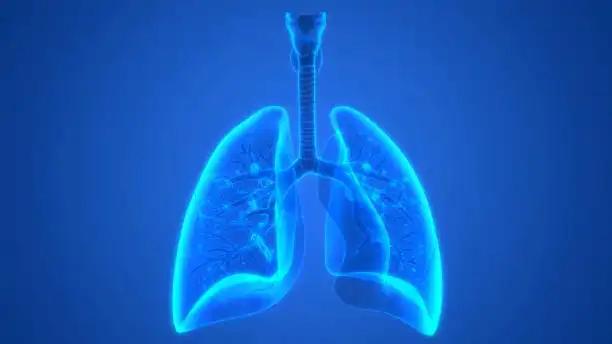KEY TAKEAWAYS
- DESTINY-Lung04 is a phase 3 trial (NCT05048797) to compare the efficacy and safety of first-line T-DXd against SOC in HER2-mutant NSCLC.
- The study compares the efficacy and safety of first-line T-DXd against SOC in patients with HER2 exon 19 or 20 mutations.
- The study was conducted among patients who were made to take platinum, pemetrexed, and pembrolizumab or T-DXd (temozolomide, doxorubicin, and dexamethasone).
- The study’s endpoints are PFS, OS, and DOR; outcomes will be evaluated later.
Patients with oncogene-driver subgroups of metastatic NSCLC are offered immunotherapy, chemoimmunotherapy, and matching targeted treatments as part of the standard of care (SOC). Although HER2-targeted therapies have revolutionized the treatment of patients with breast and gastric cancers, no such treatments have yet been licensed for non-small cell lung cancer (NSCLC).
The anti-HER2 antibody, cleavable tetrapeptide-based linker, and topoisomerase I inhibitor payload make up the antibody-drug combination known as T-DXd. T-DXd showed durable and robust anticancer activity in a cohort of previously treated patients (median, two prior lines) with unresectable or metastatic HER2-mutant NSCLC, with a 55% confirmed objective response rate (ORR), the median duration of response (DOR) of 9.3 months, a median progression-free survival (PFS) of 8.2 months, and median overall survival (OS) of 17.8 months (Li et al. N Engl J Med. 2022).
It is essential to compare the efficacy of T-DXd and SOC in the first-line context because of the success seen in later-line conditions and due to the unmet need for treatments in patients with HER2-mutant NSCLC.
The purpose of DESTINY-Lung04 is to compare the efficacy and safety of first-line T-DXd against SOC in patients with HER2 exon 19 or 20 mutations and unresectable, locally advanced (not susceptible to curative therapy) or metastatic nonsquamous NSCLC (detected in tissue or circulating tumor DNA). Individuals in the locally advanced or metastatic illness scenario without EGFR or other targetable oncogenic changes in their malignancies are eligible for systemic palliative therapy. Metastases to the brain necessitate the patient’s prior completion of local treatment.
Participants were assigned to receive either platinum (either cisplatin or carboplatin), pemetrexed and pembrolizumab (SOC), or T-DXd (temozolomide, doxorubicin, and dexamethasone). The primary endpoint is progression-free survival measured by RECIST version 1.1, according to BICR. Investigator-assessed PFS (by RECIST 1.1) and time to second progression or death (per local standard clinical practice), CNS PFS (by RECIST 1.1 per BICR), landmark PFS at 12 months (by RECIST 1.1 per BICR and investigator), and landmark OS at 24 months, OS, ORR, and DOR (by RECIST 1.1 per BICR and investigator) are secondary endpoints. Patient-reported outcomes such as pulmonary symptoms and tolerability, pharmacokinetics, immunogenicity, and safety will be evaluated later.
Source: https://meetings.asco.org/abstracts-presentations/213082
Clinical trial:https://clinicaltrials.gov/ct2/show/NCT05048797
Li, B. T., Ahn, M.-J., Goto, K., Mazieres, J., Padda, S. K., William, W. N., Wu, Y.-L., Dearden, S., Ragone, A., Viglianti, N., & Gasco, A. (2022). Open-label, randomized, multicenter, phase 3 study evaluating trastuzumab deruxtecan (T-DXd) as first-line treatment in patients with unresectable, locally advanced, or metastatic non–small cell lung cancer (NSCLC) harboring HER2 exon 19 or 20 mutations (DESTINY-Lung04). Journal of Clinical Oncology, 40(16_suppl), TPS9137–TPS9137. https://doi.org/10.1200/jco.2022.40.16_suppl.tps9137



